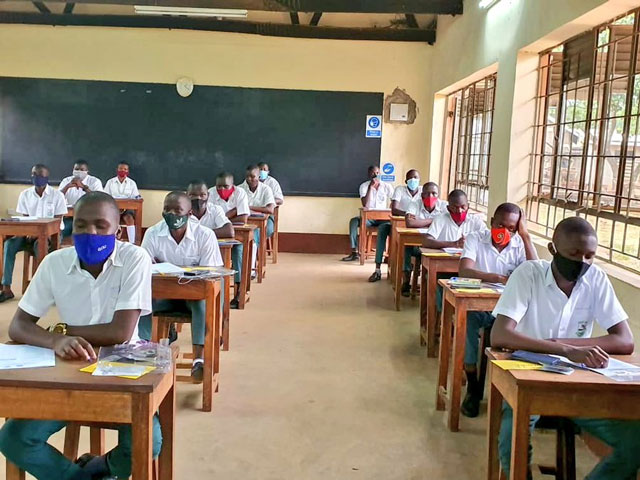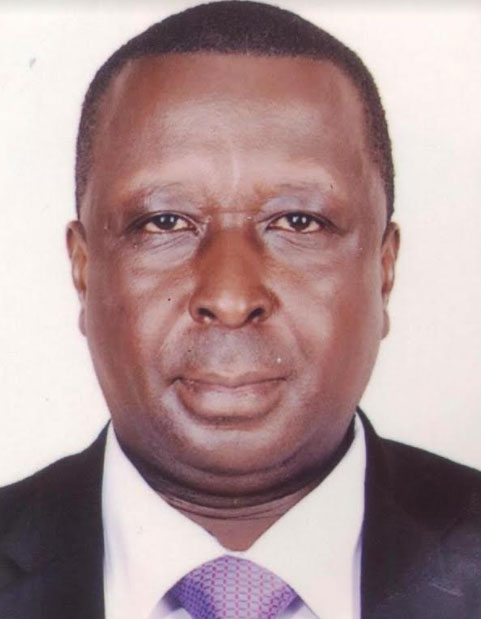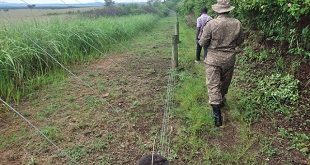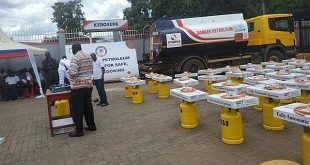
COMMENT | Alfred Geresom Musamali | Few people have felt the personal pain of missing a national examination like I did in November, 1973. I was blocked from sitting the Primary Leaving Examination (PLE) due to a disagreement between my parents and the headteacher of the then Nyondo Boys’ Demonstration School in Mbale, eastern Uganda.
To date I have never found out if my parents were right or if headteacher Leopold Makayi (RIP) was the one right. My father said he had cleared the school dues when he met Makayi along some village road but Makayi said he could not remember any such payment. By the time of that revelation, it was too late to pay more money and get registered for the papers. But, in my case, my father transferred me to the former Kisoko Boarding Primary School in Tororo the following year, I sat the examinations there, and came out among the national stars.
The news, therefore, that education and sports minister Janet Kataaha Museveni has directed the Uganda National Examinations Board (UNEB) to set a special examination for 23 Kakumiro district candidates who missed their Mathematics paper on Tuesday, November 7th this year has elated me.
The children missed due to transport hiccups resulting from the Ebola lockdown in Kakumiro. They had been registered for examinations in a centre 15kms away and their headteacher who ought to have secured for them movement permits as well as arranged for their transport simply switched off his phone and sublimated like iodine. By the time the children completed walking that distance, their colleagues were already halfway through the exam.
I have directed the Uganda National Examinations Board (@UNEB_UG) to set a special paper for the 23 Primary Seven candidates from St. Christine Primary School, Kakumiro district, who recently missed their examinations.
— Janet K Museveni (@JanetMuseveni) November 17, 2022
ED Dan Odongo "It was agreed that considering the exceptional circumstances under which the vulnerable candidates missed their examination, after fulfilling all the requirements, the Board administers another mathematics paper to the affected candidates".@Educ_SportsUg pic.twitter.com/7Ci66vTztR
— Uganda National Examinations Board (@UNEB_UG) November 17, 2022
UNEB regulations bar admission to any candidate who reports for examinations more than 15 minutes after the scheduled beginning time.
Dan Odong Nokrach, the UNEB chief executive, yesterday said the minister had directed that a new examination be administered to them. “The Board (UNEB) wishes to emphasise that this is a one-off event, which will not be treated as a precedent,” said Odongo. And that is where he gets it wrong because precedents have been set over the past 40 years.
During the 1985 examinations season, UNEB had prepared, protected, conducted, supervised, marked and was even in the process of releasing the results of the PLE and the Uganda Certificate of Education (UCE) examinations when the minister, in accordance with the law, directed them to halt. See, while the examinations were going on, western Uganda had been cut off by the liberation war.
The Uganda National Liberation Army (UNLA) had just overthrown the Uganda People’s Congress (UPC) government led by Dr Apollo Milton Obote. The UNLA was now not only facing disgruntlement in the parts of Uganda under its control but also facing outright rebellion in western Uganda which had now mostly fallen under the control of the National Resistance Movement/Army (NRM/A) led by current President Yoweri Museveni. General Museveni is also husband of the current education and sports minister.
When the NRM/A victoriously beat the UNLA and entered Kampala in January 1986, new education minister Nuwe Amanya Mushega by powers entrusted to him under the now repealed UNEB Act of 1980 directed the UNEB secretary Livingstone Ongom (RIP), his deputy Saverio Pido and senior examinations officer Esther Angulo to organise other examinations for the children who had missed out.
When the NRM/A victoriously beat the UNLA and entered Kampala in January 1986, new education minister Nuwe Amanya Mushega by powers entrusted to him under the now repealed UNEB Act of 1980 directed the UNEB secretary Livingstone Ongom (RIP), his deputy Saverio Pido and senior examinations officer Esther Angulo to organise other examinations for the children who had missed out.
Ongom’s team ensured that the examinations were administered and their results merged with those of candidates who had sat in November/December sessions, then released them before joint selection exercises could be held for entry into Senior 1 (S1) and Senior 5 (S5). The affected students (some of them underage soldiers clad in their military combat uniforms!) were given time to return to school, settle down and prepare for their examinations before sitting them. Even those who had not had opportunity to register for the exams before their areas were cut off were registered at short notice, prepared for the examinations and allowed to sit them.
The Uganda Advanced Certificate of Education (UACE) and exams for certificate-awarding tertiary institutions were by then sat in March/April while the diploma and Makerere University (the only degree-awarding institution of the time) examinations were sat in June to August. In the diploma-awarding institutions and in Makerere, a special compensatory term (the semester system had not come yet!) was created to accommodate the affected students before sitting their examinations while the unaffected ones simply took a longer vacation.
So, setting examinations for post-secondary students who have either missed or failed one or more papers in the main examination had been there before 1986 and it continues to be there. This set is called supplementary examinations and has policies governing it. One provision is that the candidate resitting a particular paper must have been attending lectures for that paper, sat for it and scored a certain minimum mark or was indisposed through documented sickness or other causes (such as war) and did not attempt the paper at all.
I was newly graduated, newly employed in the public service as an information officer/news reporter but also part-timing in a few schools in eastern Uganda as an untrained teacher at that time. As teachers, we were required to receive back the affected students and help them the best way we could to prepare for the examination. I, however, do not remember any students falling in this category in the schools where I worked. Of course, some of those affected children went back straight into the army after writing their last paper and they are the current lot of retiring officers
Current UNEB chief executive Dan Odongo ought to remember this very well because by then he was Chief Examiner (CE) for Agriculture (Principles and Practices) and was required to handle the supplementary papers for that subject. Current UNEB deputy chief executive James Turyatemba, too, would remember this because either his own first time entry into or his second year return to Makerere for teacher training during the Academic Year 1985/86 was similarly affected.
TRUE ✅:- @UNEB_UG shall make special arrangements for the 23 P.7 pupils of St. Christine P/Sch. in Kakumiro who missed their PLE Math Paper to complete their PLE since they were able to sit the other Papers. @Educ_SportsUg @UgandaMediaCent @GCICUganda @JanetMuseveni @MorikuJoyce pic.twitter.com/NSwXAmWaWB
— Dennis Mugimba (@DeKaMug) November 17, 2022
In conclusion, this practice has precedents except that they have been more at post-secondary levels of education. Moreover, no doubt the UNEB Act (2021) empowers the minister to, on the recommendation of UNEB, “make regulations generally for the better carrying out of the provisions of this Act”.
What we now need is a policy or regulation outlining clearly how this situation applies to primary and secondary education.
If a school block got burnt like happened recently in Mukono, would those children through their teachers be in position to plead for more time to settle down before writing their papers. If disaster such as an accident affected one rather than many candidates preparing for examinations, would the education and sports minister be in position to listen to the pleas of that one candidate, or their parents or their teachers so that the candidate is given a bit more time to prepare before attempting supplementary tests? And, anyway, when these Kakumiro kids sit the papers and get their results, will those results have been attained “…at one and the same sitting” like certain entities that demand the results insist? Or else, suppose one of those candidates gets too scared of revising Mathematics again but comes out with distinctions in the other subjects, will that candidate be denied admission to secondary school on account of the missing results?
Is there an examination centre that UNEB can establish to which candidates in such trouble could go to register and sit for their papers (even if at a heavy individual cost) or must the candidates miss the whole year of brainwork and financial sacrifice on account of a one-day calamity?
Finally, will the directive to administer supplementary examinations on such a day, in such a place, to such and such primary and secondary school children but not to others who could have missed due to a landslide in Bududa be delivered through a ministerial letter to UNEB and its successors, or by word of mouth at some ministerial function or by statutory instrument?
*******

The author is Founding Director of Vicnam International Communications Ltd, a private firm of communications, public relations and information management consultants. He specialises in the Proofreading and General Editing (PAGE) of documents and can be contacted by Tel: (+256)752-649519 and by Email: agmusamali@hotmail.com.
 The Independent Uganda: You get the Truth we Pay the Price
The Independent Uganda: You get the Truth we Pay the Price



